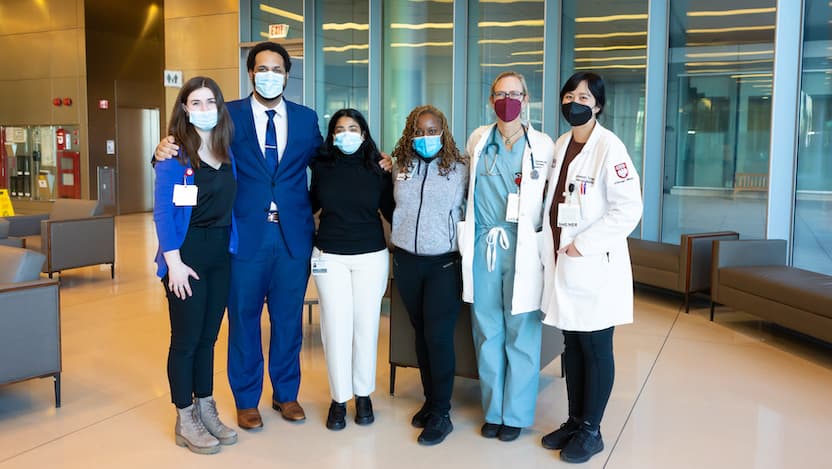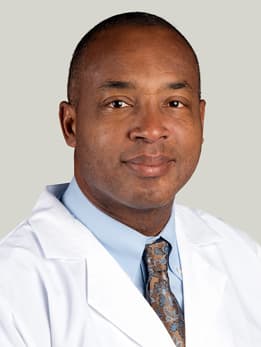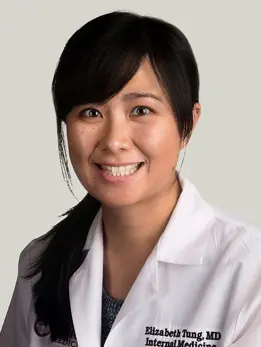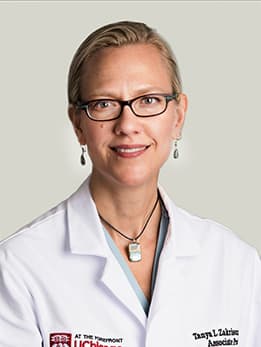UChicago Medicine, Legal Aid Chicago launch bedside program to provide in-hospital legal support for trauma patients injured by violence

The University of Chicago Medicine has launched a novel program with Legal Aid Chicago, embedding two full-time lawyers within the health system’s Level 1 trauma center. The initiative, called Recovery Legal Care, will provide bedside civil legal help for patients and families recovering from violent injuries. The teams hope that by offering both trauma-informed and justice-informed care, patients will be able to focus on recovery instead of worrying about health-harming legal needs and economic stability.
“If we are to address violence on the South Side of Chicago, we must first investigate the justice gap that disproportionately affects our underprivileged communities of color,” said program co-director Selwyn Rogers, Jr., MD, MPH, Chief of Trauma and Acute Care Surgery and Founding Director of UChicago Medicine’s Level 1 trauma center.
Since the comprehensive trauma center began caring for adult patients in 2018, physician-scientists at UChicago Medicine have worked alongside public health researchers to determine the unique needs of trauma patients — particularly those injured through intentional gun violence. The team found that the South Side health system’s adult trauma patients ranked legal and financial needs as their primary concerns during violence recovery, higher than even medical or psychological support.
“People shouldn’t have to worry about getting their utilities shut off during a hospital stay or getting fired from their job,” said Elizabeth Tung, MD, MS, Recovery Legal Co-Director and a health disparities researcher. “There is a critical need to develop structural interventions that address the complex needs of trauma patients and their families.”
Recovery Legal Care, which is funded primarily through $2.6 million in federal grants awarded to UChicago Medicine’s trauma center, will spend the first year focusing on helping patients obtain public benefits and economic stability. After that, the team hopes to expand the pilot project to add assistance for housing, education and employment. The pilot project is expected to serve about 150 patients during its inaugural year.
LEGAL SUPPORT AT THE BEDSIDE
Attorneys will be embedded in the Hyde Park hospital two days per week in tandem with UChicago Medicine’s Violence Recovery Program (VRP) and trauma teams. They will assess the case-by-case legal needs at the bedsides of patients admitted to the inpatient trauma service for violent injury from things like shootings. The lawyers will then directly represent patients who are eligible for services and advocate on their behalf for public benefits or economic compensation.
“Working with thousands of patients recovering from intentional violence, we’ve seen the physical and emotional damage of firearm injuries. But what doesn’t always get as much attention — but can be equally as damaging — is the stress of things like insecure housing, economic stability and access to public benefits,” said Franklin Cosey-Gay, PhD, MPH, Director of UChicago Medicine’s Violence Recovery Program. “These are real and draining stressors that hamper a patient’s recovery journey and are the primary reason we wanted to expand the Violence Recovery Program to explore the option of adding legal assistance into our trauma center work.”
Lawyers include Carly Loughran, an Equal Justice Works fellow spending her two-year fellowship as a staff attorney at Legal Aid Chicago. She came to Chicago hoping to assist those impacted by gun violence.
“We, at Legal Aid Chicago, have known for almost a decade that medical legal partnerships (MLPs) are some of the most effective ways to connect with patients in their most vulnerable moments of need,” said Mona Elgindy, Legal Aid Chicago’s Supervisory Attorney of the Public Benefits Practice Group and Recovery Legal Care’s Legal Team Co-Director. “Carly came to us with an MLP idea that initially focused on assisting gunshot victims on the South Side of Chicago. We jumped at the opportunity due to the input of our partners at UChicago Medicine. Thanks to their teamwork and all of our advocacy, this program has grown in magnitude, which in effect means that we can help more Chicagoans.”
A NOVEL EXPERIMENT
The health system began operating its pediatric Level 1 trauma center more than 35 years ago but launched its adult trauma program in May 2018. Since then, the center has cared for more than 20,000 patients. About 40% of trauma patients treated at UChicago Medicine have penetrating injuries, which typically include gunshot wounds and stabbings.
While other medical-legal trauma partnerships exist, Recovery Legal Care is among the first in the United States to operate within a hospital-based violence recovery space. A key component of the project is including a data-collection element so researchers can evaluate the effectiveness of the program.
“We’ve seen partnerships like this improve patients’ mental health, medical adherence and housing stability, in addition to reducing hospital readmissions and offering greater access to financial resources,” said trauma surgeon Tanya Zakrison, MD, MPH, Principal Investigator for both federal grants. “By working alongside surgeons, social workers and violence recovery specialists, the goal is to help lawyers build rapport with patients that they might not be able to garner on their own.”
To evaluate the program’s success, the team will use legal and electronic health records data along with surveys to understand how addressing legal and economic needs benefits a patient’s physical, mental and social health and well-being.
“This is a human rights issue,” said Rogers. “Through this pilot project, we hope to investigate the justice gaps — shining a light on the root causes of gun violence and effecting policy change.”
Recovery Legal Care is being funded by a $1.6 million grant from the National Institutes of Health and a $1 million grant from the Department of Justice. If the work is considered a success during its pilot phase, it is eligible for another $3.4 million in federal grants, bringing the total grant funding to $6 million. The project is also being supported by Equal Justice Works (EJW), a nonprofit that helps young lawyers establish public service careers.
“Our goal in this partnership is to disrupt the inaccessibility of legal services for patients injured by violence,” said Loughran. “Many patients don’t know what civil legal issues are, and after experiencing violence, many people are not in the headspace to seek legal help. Working bedside with violence recovery specialists will allow us to give patients easy access to civil legal services in a manner that is thoughtful and sympathetic to the traumatic event they have just experienced.”

Selwyn O. Rogers, Jr. MD, MPH
Selwyn O. Rogers Jr., MD, MPH, FACS, is a widely respected surgeon and public health expert. As founding director of the University of Chicago Medicine Trauma Center, Dr. Rogers is building an interdisciplinary team of specialists to treat patients who suffer injury from life-threatening events, such as car crashes, serious falls and gun violence. His team works with leaders in the city's trauma network to expand trauma care on the South Side.
Learn more about Dr. Rogers
Elizabeth Tung, MD, MS
Elizabeth Tung, MD, MS is a researcher and practicing internist in the Section of General Internal Medicine. Her research focuses on disparities in chronic disease management, with a special interest in race, place, and poverty.
See Dr. Tung's physician profile
Tanya Zakrison, MD, MPH
Trauma surgeon Tanya Zakrison, MD, MPH, is Director of Critical Trauma Research at UChicago Medicine.
See Dr. Zakrison's profile